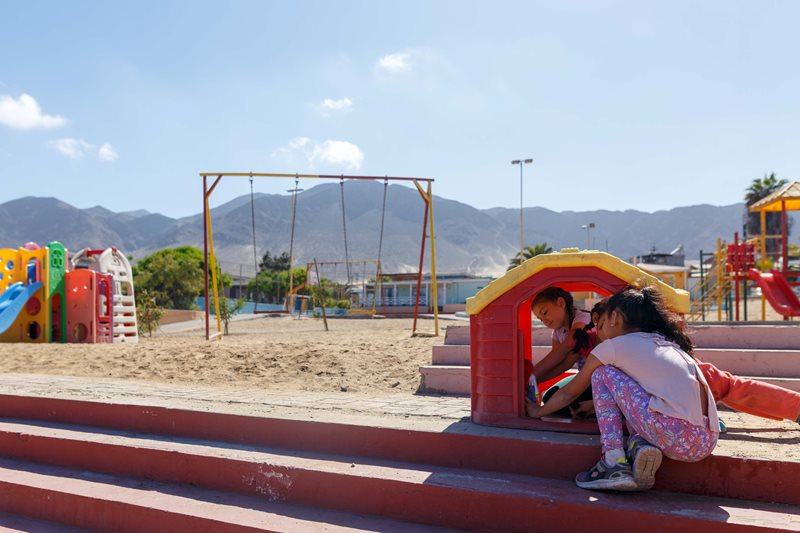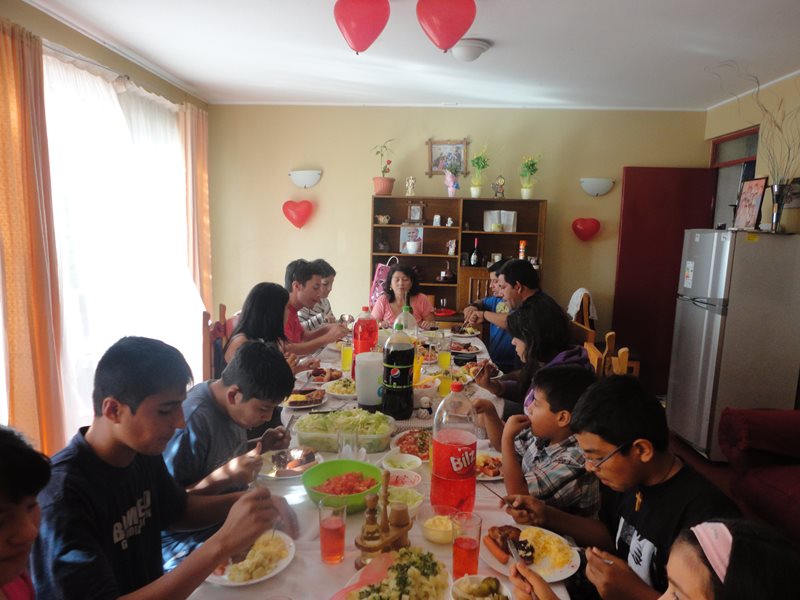Not everyone has profited from the treasures of the soil

The city of Antofagasta, capital of the province of the same name, has a population of over 400,000 and is located in middle of the Atacama Desert in northern Chile, bordered by the Pacific Ocean on the west. The region owes its wealth mainly to copper mining, but other industries, such as construction and commerce, have been expanding in recent years. The cost of living here is the second highest in the country after Santiago, and there is an unequal distribution of wealth.
Many people have moved to Antofagasta in search of a better life – some come from other Chilean regions, others from neighbouring countries. Many families end up living in isolated shantytowns in the desert on the outskirts of the city. These settlements have been growing rapidly in recent years, and an increasing number of people live in unsafe and crowded structures with no access to safe drinking water or sanitation services. In addition, families who arrive in Antofagasta find it hard to find regular work and are very vulnerable because they do not have support structures in their new community.
Single mothers, children and young people most at risk
Youth unemployment, in particular, remains at high levels, and children and young people are the most vulnerable sector of society. For women who are heads of households, the rates of poverty have even been on the increase. This means that a single mother’s income is often not enough to provide for her family, putting them especially at-risk of falling into poverty. A great number of children therefore begin life at a disadvantage, making success as an adult harder to achieve.
When families break apart, children sometimes have to fend for themselves, living on the streets, begging or doing other menial jobs. SOS Children’s Villages aims to support families in difficult situations before it comes to this crisis point, so that children can stay with their parents.
What we do in Antofagasta

SOS Children’s Villages began its work in Antofagasta in 1987.
Strengthen families: We provide support to families so that they can stay together, care for their children and make a living. We offer different kinds of support depending on the needs of the family. This assistance ensures that the families have enough food, and that the children can go to school or visit the doctor if they are ill. Many of the families we help have recently arrived in Chile from neighbouring countries. With few resources, they often live in slums and struggle to find regular work.
Care for children who have lost parental care: For children in Antofagasta who are no longer able to live with their parents, SOS families can provide a loving home. In SOS Children`s Village Antofagasta children are cared for until the age of 14. As there is a big demand for quality care for younger children, SOS Children`s Villages decided to focus our attention on this age group. Around the age of 14, young people are supported so that they can move to another care organization. Boys and girls are looked after separately, and the care they receive there is very similar to that which they would receive in SOS Children`s Villages. The young people are carefully prepared for the move and regularly visit their new residence before moving in. The team stays in touch with them as they settle into their new homes.
Support for young people: Qualified counsellors support young people while they pursue further education or vocational training. Young people learn to take responsibility, plan their future and prepare for independent adult life.